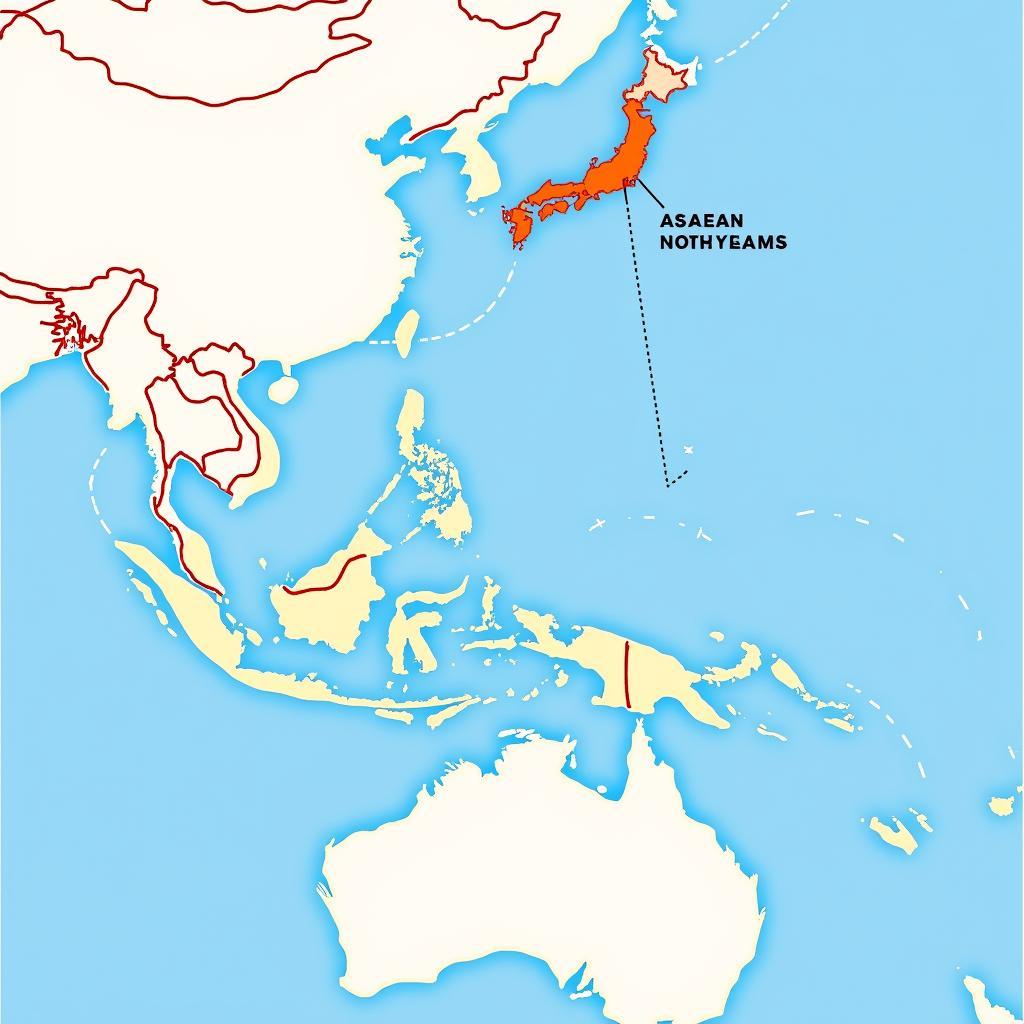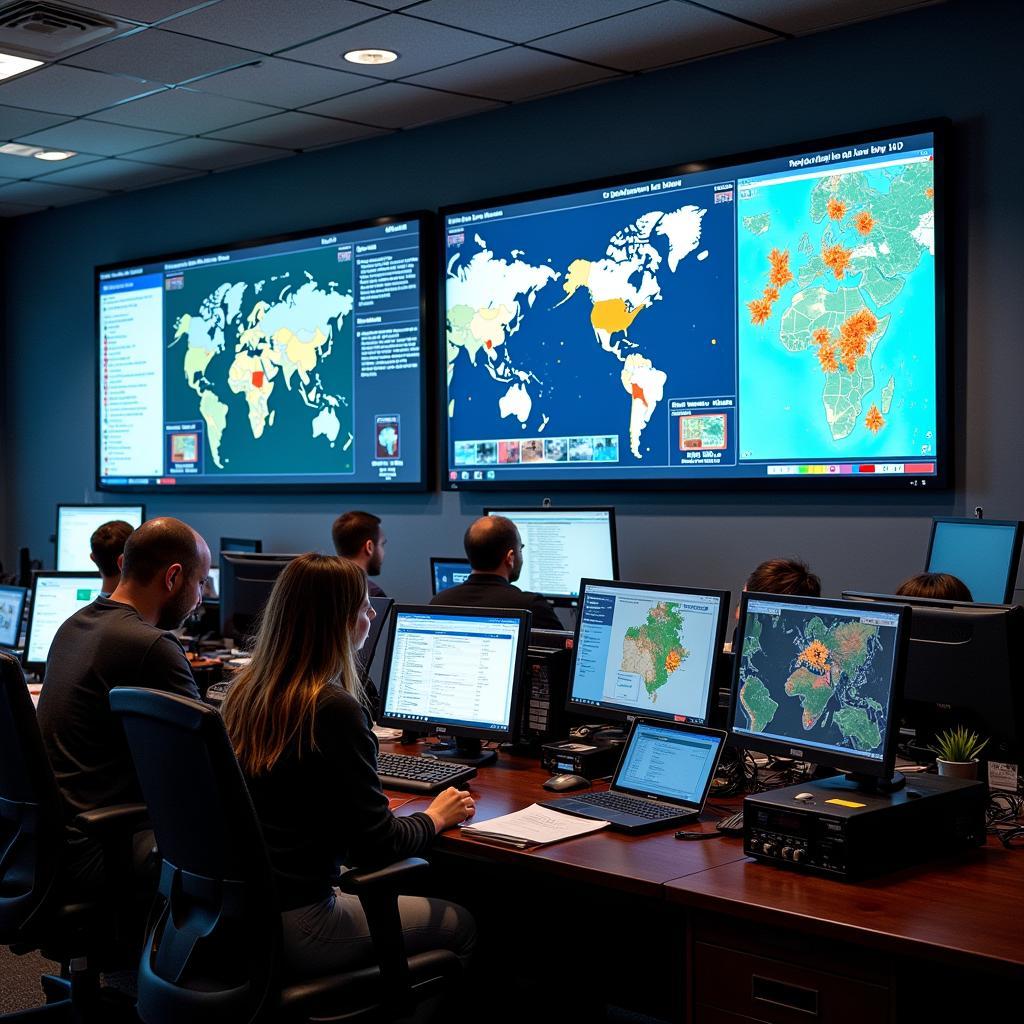The phrase “A War Between Asean And China” has been echoing around geopolitical circles, sparking debates and anxieties. But is a full-blown conflict between the Association of Southeast Asian Nations and the Asian giant a realistic scenario, or is it a hyperbole fueled by rising tensions? This article delves into the complexities of the ASEAN-China relationship, examining the potential flashpoints and the intricate web of economic and political factors at play.
ASEAN and China: A Relationship Marred by Disputes
Despite being geographically close and economically intertwined, the relationship between ASEAN and China is far from harmonious. Several points of contention cast a long shadow over their interactions:
The South China Sea Dispute: A Crucible of Conflict
At the heart of the tension lies the South China Sea dispute, a complex territorial conflict involving overlapping claims over islands, reefs, and maritime zones. China’s assertive claims, often represented by its nine-dash line, directly clash with the claims of several ASEAN member states, including Vietnam, the Philippines, Malaysia, and Brunei.
 South China Sea Dispute Illustration
South China Sea Dispute Illustration
This dispute has led to frequent standoffs, military exercises, and diplomatic wrangling, raising concerns about potential escalation. The risk of miscalculation or an unintended incident sparking a broader conflict is a real and pressing concern.
Economic Interdependence: A Double-Edged Sword
While the South China Sea dispute fuels tensions, the economic relationship between ASEAN and China paints a different picture. China stands as ASEAN’s largest trading partner, and their economies are deeply intertwined.
This economic interdependence serves as a powerful incentive for cooperation and conflict avoidance. However, it also creates a complex power dynamic, with ASEAN states wary of becoming overly reliant on China.
Could a War Really Happen?
While a full-scale war between ASEAN and China is unlikely, the potential for conflict cannot be ignored.
“The South China Sea dispute remains a tinderbox,” argues Dr. Nguyen Minh Hanh, a prominent expert on Southeast Asian security, “and any miscalculation or aggressive action could easily ignite a broader conflict.”
Several factors make a full-blown war unlikely:
- ASEAN’s Principle of Non-Interference: ASEAN operates on a principle of non-interference in the internal affairs of member states. This principle makes it difficult for ASEAN to act as a unified bloc in a military conflict.
- Economic Interdependence: As mentioned earlier, the economic ties between ASEAN and China are substantial. A war would be economically devastating for all parties involved.
- International Pressure: The international community, particularly powerful actors like the United States, have a strong interest in maintaining peace and stability in the region.
However, the risk of smaller-scale conflicts or proxy wars cannot be dismissed.
Navigating the Future: Dialogue and Diplomacy
The future of the ASEAN-China relationship hinges on dialogue, diplomacy, and a commitment to peaceful resolution.
- Strengthening ASEAN’s Unity: A more unified ASEAN, capable of presenting a common front on issues like the South China Sea, would strengthen its position in negotiations with China.
- Adhering to International Law: A rules-based order, with a strong emphasis on international law, is crucial for managing disputes peacefully.
- Enhancing Economic Cooperation: While managing the risks of economic dependence, deepening economic ties can provide a platform for dialogue and cooperation on other fronts.
[asean plus]
FAQs: ASEAN and China Relations
1. What is ASEAN’s stance on the South China Sea dispute?
ASEAN has consistently called for a peaceful resolution of the South China Sea dispute based on international law, particularly the United Nations Convention on the Law of the Sea (UNCLOS).
2. Is China a member of ASEAN?
No, China is not a member of ASEAN. However, it maintains close ties with the bloc through dialogue partnerships and economic cooperation.
3. What is the role of the United States in the ASEAN-China relationship?
The United States plays a significant role in the region, advocating for a free and open Indo-Pacific. Its military presence and alliances with some ASEAN member states add another layer of complexity to the ASEAN-China dynamic.
Conclusion: A Path Towards Peaceful Coexistence
The relationship between ASEAN and China is complex and multifaceted, characterized by both cooperation and conflict. While a full-blown war remains unlikely, the potential for escalation in the South China Sea is a serious concern.
[32nd asean summit theme]
The path forward requires a commitment to dialogue, diplomacy, and a rules-based order. Both ASEAN and China must prioritize peaceful conflict resolution and find ways to manage their differences responsibly. The stakes are high, and the future of the region depends on their ability to navigate these challenges successfully.
Need further assistance? Our dedicated team at Asean Media is here to help. Contact us at 0369020373, email us at [email protected], or visit our office located in Thon Ngoc Lien, Hiep Hoa, Bac Giang, Vietnam. We offer 24/7 customer support.

